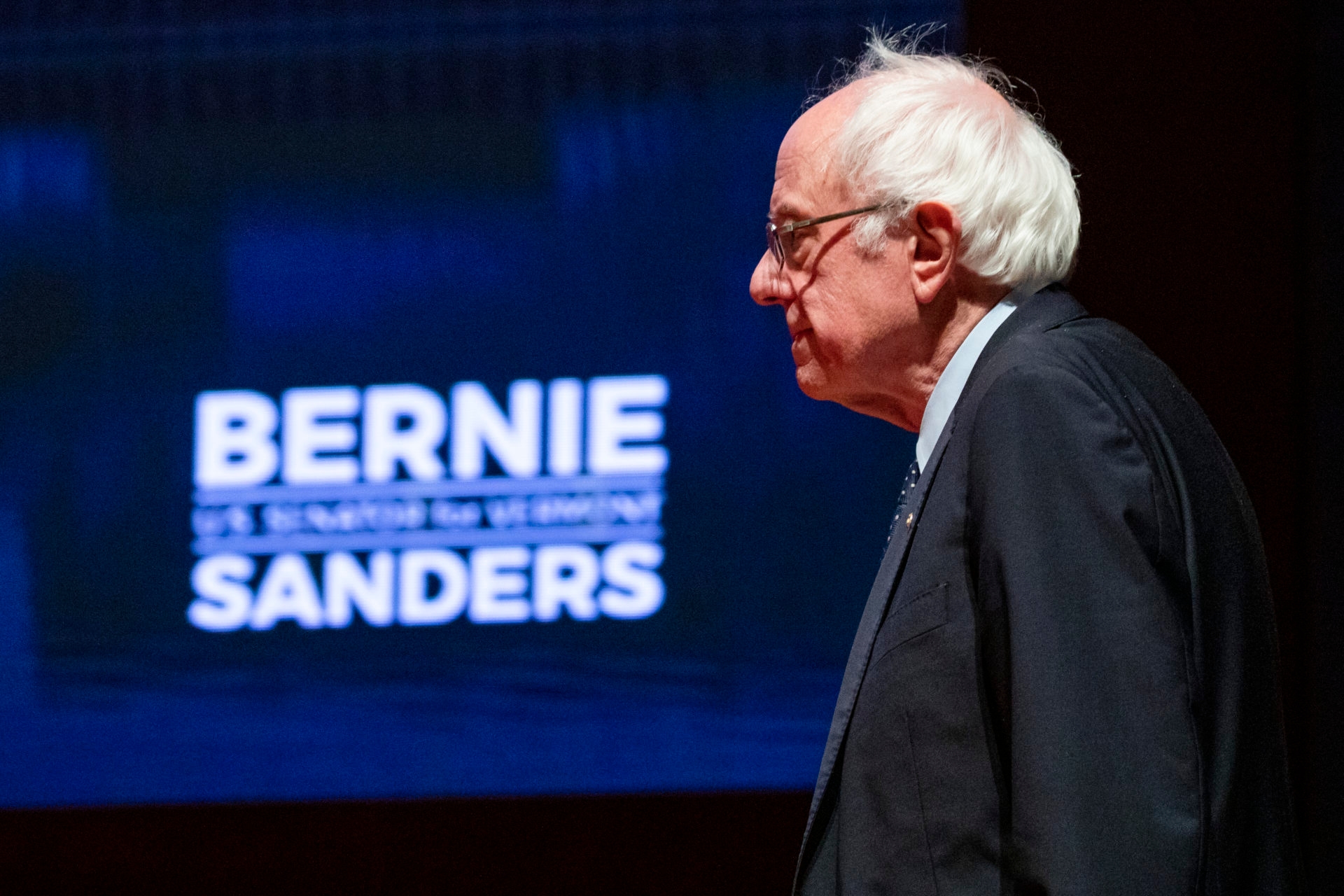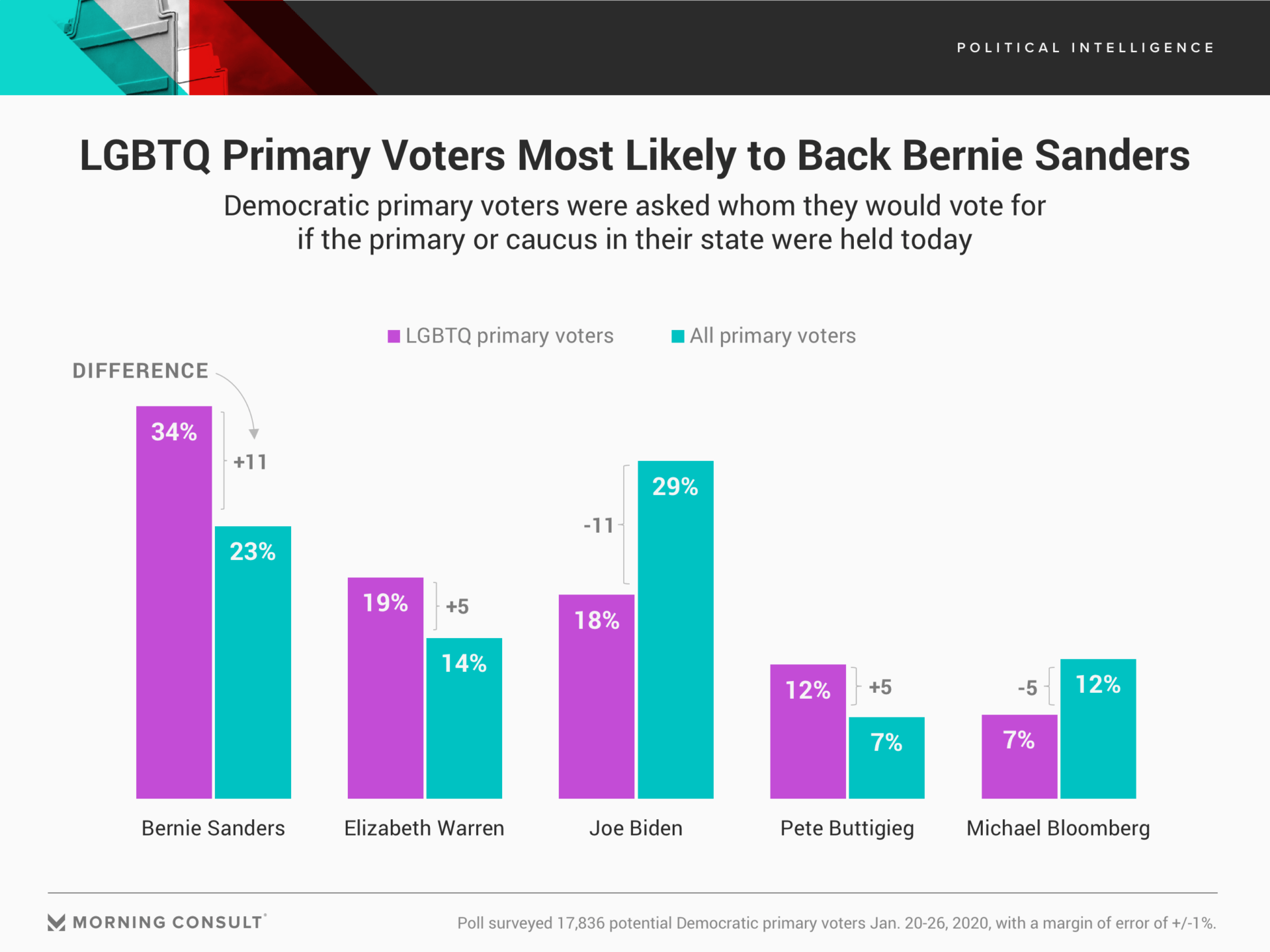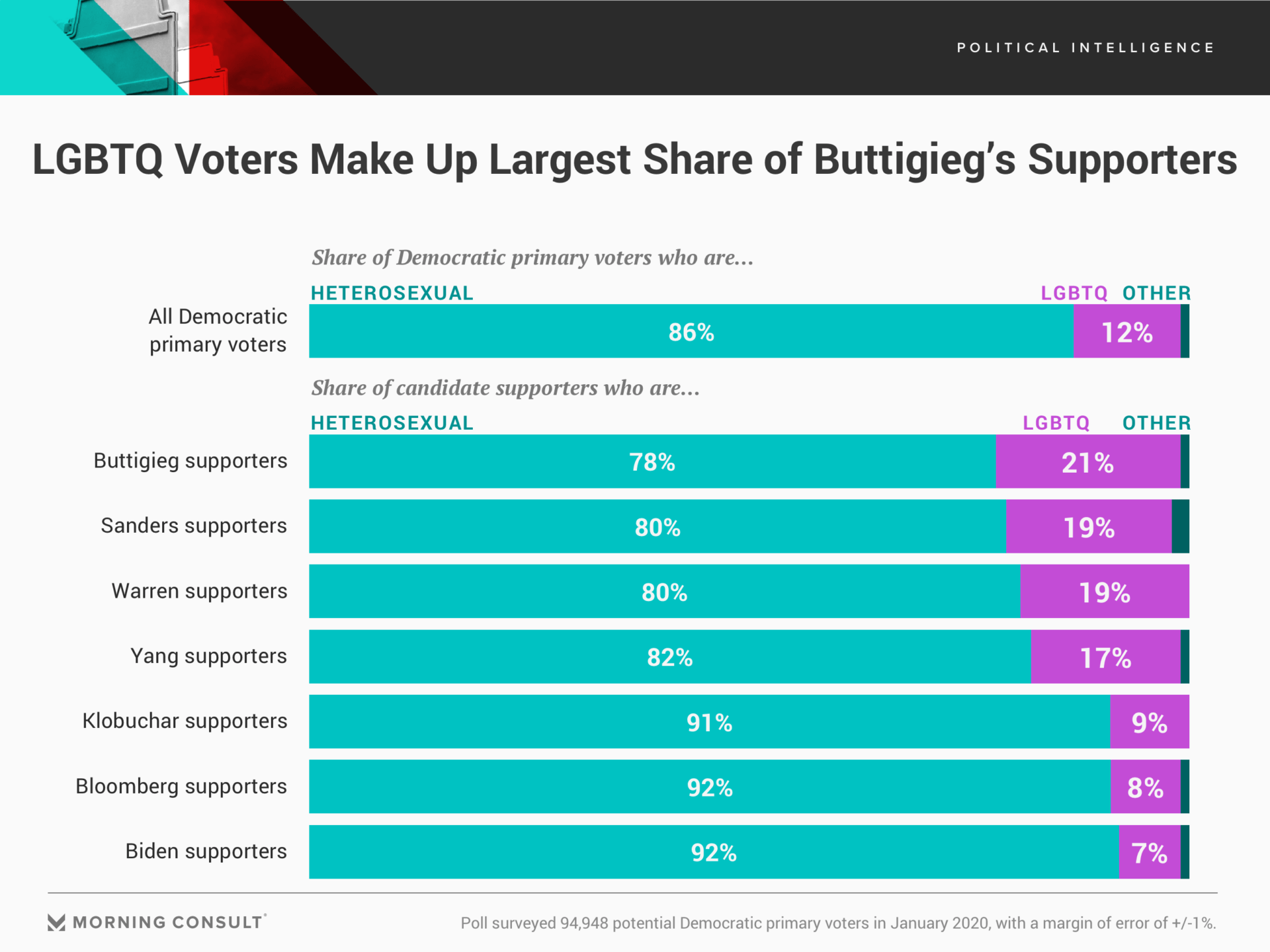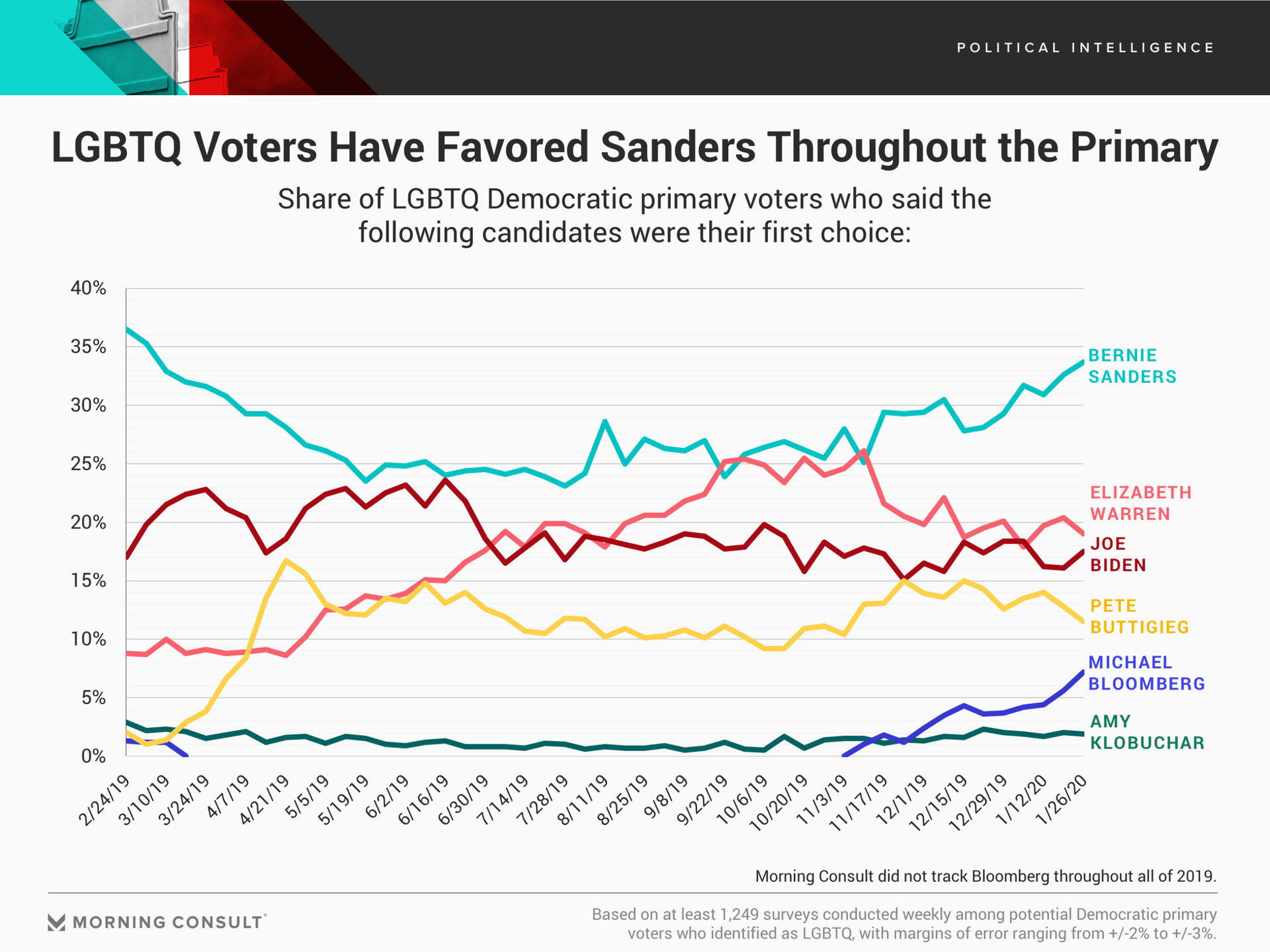Bernie Sanders Has a Big Lead With LGBTQ Voters

Key Takeaways
34% of LGBTQ primary voters say Sen. Bernie Sanders is their top choice for president, overperforming his first-choice share among the broader electorate by 11 points.
Compared to all Democratic primary voters, LGBTQ voters are roughly twice as likely to identify as “very liberal” and to be ages 18-29.
Biden, the national front-runner, has never led the race among LGBTQ voters, and statistically ties Sen. Elizabeth Warren with the demographic.
The Democratic Party is viewed as a coalition of different groups -- African Americans and Jewish Americans, laborers and teachers -- all organized around a series of particular policy concerns. Among them are LGBTQ Americans, who account for more than a tenth of the party’s primary electorate, Morning Consult polling shows, and are backing Sen. Bernie Sanders (I-Vt.) in a big way.
According to the latest Morning Consult poll that tracks the race, Sanders is the first-choice candidate for 34 percent of Democratic primary voters who identify as LGBTQ, topping his support among the broader electorate by 11 percentage points.

Sanders has a long record of support for gay rights. As Burlington mayor in the 1980s, he proclaimed a Gay Pride Day, while during his tenure in the House, he opposed the Defense of Marriage Act and “don’t ask, don’t tell,” a law that barred gay and lesbian military servicemembers from acknowledging their sexual orientation. And in 2009, Sanders endorsed marriage rights for gay couples -- three years before then-Vice President Joe Biden did the same.
But perhaps more notably, Sanders’ strength with LGBTQ primary voters aligns strongly with their demographics.
The Jan. 20-26 poll found that 12 percent of the 17,836 voters who indicated they may vote in the Democratic primary or caucus in their state identified as LGBTQ.
Like Sanders’ supporters, the group skews younger and more liberal than the broader primary electorate: LGBTQ voters are roughly twice as likely to identify as “very liberal” (33 percent vs. 16 percent) and to be between the ages of 18 and 29 (35 percent to 18 percent).

The demographic makeup helps explain why Biden underperforms among LGBTQ primary voters, down 11 points compared to his share of the overall primary electorate. Among those who are backing Biden in the contest, 7 percent identify as LGBTQ, compared with about 1 in 5 voters who support Sanders and Sen. Elizabeth Warren (D-Mass.).
Biden, who made waves for coming out for gay marriage before President Barack Obama endorsed it ahead of the 2012 election, has never led the race among LGBTQ voters, though he did come close amid a surge in support around the time of his April campaign launch. Warren more strongly tested Sanders’ grip on the group as she experienced a prolonged rise of her own from late summer into the fall months of 2019.

Former South Bend Mayor Pete Buttigieg of Indiana, the first openly gay major presidential candidate, outperforms his overall first-choice vote share among LGBTQ voters by 5 points (12 percent to 7 percent), though he trails Warren, Biden and Sanders. Twenty-one percent of his voters identify as LGBTQ, more than any other candidate in the race.
Buttigieg’s favorability among LGBTQ voters (50 percent) roughly matches that of his favorability among voters overall, while Sanders and Warren are the most popular, with 74 percent and 68 percent favoring them, respectively.
A Jan. 17-19 Morning Consult/Politico poll found 64 percent of Democratic voters say a gay or lesbian candidate would have a difficult time beating President Donald Trump, more than the 58 percent and 52 percent who respectively said the same of a woman or a candidate of color.
But looking to November, none of the aforementioned Democratic candidates had a significant advantage over each other with the group against Trump, whose approval among all LGBTQ voters in the United States is 52 points underwater, with 22 percent approving and 74 percent disapproving. On average, the four candidates lead Trump by nearly 50 points (68 percent to 19 percent) among LGBTQ voters, with 13 percent undecided.
Eli Yokley is Morning Consult’s U.S. politics analyst. Eli joined Morning Consult in 2016 from Roll Call, where he reported on House and Senate campaigns after five years of covering state-level politics in the Show Me State while studying at the University of Missouri in Columbia, including contributions to The New York Times, Politico and The Daily Beast. Follow him on Twitter @eyokley. Interested in connecting with Eli to discuss his analysis or for a media engagement or speaking opportunity? Email [email protected].